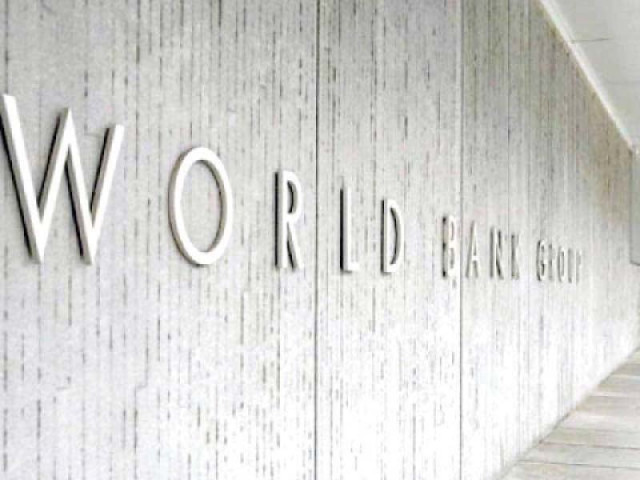World Bank downgrades rating of Punjab project
Move comes due to provincial government’s failure to approve a spatial strategy

The steps towards developing and implementing the Provincial Spatial Strategy are facing delays as they are yet to be approved by the provincial cabinet, according to the World Bank report. The due date for approval of the strategy was October last year. PHOTO: FILE
Punjab Jobs and Competitiveness Programme for Result has been downgraded to ‘moderately satisfactory’ after its sixth review held recently, according to the World Bank’s Status and Result Implementation Report.
In March 2016, the Washington-based lender had approved $100 million or Rs14 billion (at current exchange rate) under its hybrid financing instrument Programme for Result (PfR). The PfR disbursements are linked with progress on implementation of agreed set of conditions that makes it different from usual budget or project financing.
It is for the first time that the lender has lowered both the ratings on progress towards Achievement of Project Development Objective and Implementation Progress to moderately satisfactory.
Earlier, in February 2017, the World Bank had only cut the rating on Implementation Progress to moderately satisfactory, which was subsequently revised upward.
The steps towards developing and implementing the Provincial Spatial Strategy are facing delays as they are yet to be approved by the provincial cabinet, according to the World Bank’s report. The due date for approval of the strategy was October last year.
The government of Chief Minister Usman Buzdar has also delayed the development of operating procedures and regulatory framework for enforcement of the spatial strategy.
The World Bank had approved the loan as part of a reform package that was ultimately aimed at lowering poverty and unemployment rates by removing barricades to reforms. However, there has been criticism against initiating reforms by taking foreign loans. It is believed that only home-grown reforms can yield the desired results.
So far, the World Bank has disbursed $40 million under the programme. The future disbursements of the remaining amount would be linked with fulfilling the conditions that had been agreed at the time of signing of the programme.
The updates to the Medium Term Development Framework based on outcomes of the Punjab Spatial Strategy have also been delayed. The capacity building for line departments to submit sectoral plans for the Annual Development Plan consistent with the spatial strategy has also been delayed.
The objective of the project is to contribute to the competitiveness of Punjab by reducing the cost of doing business and improving the hard and soft infrastructure in support of industry. The loan is also aimed at supporting the industrial development objectives by improving business environment regulatory reforms. These reforms have been planned to remove impediments to swift business registration, getting permits and licensing, contract enforcement and property registration.
The World Bank said that the targets of designing and implementing a new institutional framework to support industrial estates and clusters and restructuring of Punjab Small Industries Corporation (PSIC) and launch of two Cluster Development Initiatives are partially achieved.
The audit reports of Punjab Small Industrial Corporation for previous fiscal years also remain pending.
The report noted that establishment of social units in Punjab Industrial Estate Development and Management Company and Faisalabad Industrial Estate Development and Management Company have also been delayed, which were due in January 2017. The capacity building and establishment of environmental monitoring centre and management information system for Environment Protection Agency has also been delayed, which were due by end of 2017.
But the report acknowledged that so far activities of the government of Punjab contributed towards improving Pakistan’s Doing Business (DB) ranking by 11 points (from 147 to 136 out of 190 economies), for the first time in 15 years. Lahore’s Distance to Frontier (DTF) increased by 3.17 percentage points against the target of 3 percentage points.
Punjab has also successfully institutionalised the implementation of Doing Business reforms by notifying a Reform Working Group, appointing Secretary (Planning and Development) as the provincial focal person for leading reforms, and establishing a permanent reform secretariat as part of the PIU.
The steps have also been taken to improve compliance with GSP+ Labour Conventions. The Punjab Labour Department conducted a legal gap analysis, which in addition to the drafting of two new labour laws namely the Punjab Minimum Wages Act, 2018 and the Punjab Industrial Statistic Act, 2018, has also proposed amendments in seven laws.
Several rules and subsidiary rules have also been formulated which are being reviewed by the provincial Tripartite Consultation Committee.
The year two result under DLI 3 (Steps toward the improvement of investment promotion Investments Announcements) has also been achieved, as five investment announcements were made by the leading foreign investors. The Punjab Board of Investment and Trade has also captured five investment announcements worth $198 million.
Published in The Express Tribune, March 24th, 2019.
Like Business on Facebook, follow @TribuneBiz on Twitter to stay informed and join in the conversation.


















COMMENTS
Comments are moderated and generally will be posted if they are on-topic and not abusive.
For more information, please see our Comments FAQ